- Clone
- M5E2 (See other available formats)
- Regulatory Status
- RUO
- Workshop
- III 329
- Other Names
- LPS receptor
- Isotype
- Mouse IgG2a, κ
- Ave. Rating
- Submit a Review
- Product Citations
- publications
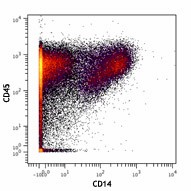
-

Human PBMCs stained with 154Sm-anti-CD45 (HI30) and 160Gd-anti-CD14 (M5E2). Data provided by DVS Sciences.
| Cat # | Size | Price | Quantity Check Availability | Save | ||
|---|---|---|---|---|---|---|
| 301843 | 100 µg | 104€ | ||||
CD14 is a 53-55 kD glycosylphosphatidylinositol (GPI)-linked membrane glycoprotein also known as LPS receptor. CD14 is expressed at high levels on monocytes and macrophages, and at lower levels on granulocytes. Some dendritic cell populations such as interfollicular dendritic cells, reticular dendritic cells, and Langerhans cells have also been reported to express CD14. As a high-affinity receptor for LPS, CD14 is involved in the clearance of gram-negative pathogens, and in the upregulation of adhesion molecules and expression of cytokines in monocytes and neutrophils.
Product DetailsProduct Details
- Verified Reactivity
- Human, Cynomolgus, Rhesus
- Reported Reactivity
- African Green, Capuchin Monkey, Cow, Chimpanzee, Common Marmoset, Cotton-topped Tamarin, Dog, Pigtailed Macaque, Squirrel Monkey
- Antibody Type
- Monoclonal
- Host Species
- Mouse
- Immunogen
- Full-length human CD14 protein
- Formulation
- Phosphate-buffered solution, pH 7.2, containing 0.09% sodium azide and EDTA.
- Preparation
- The antibody was purified by affinity chromatography.
- Concentration
- 1.0 mg/ml
- Storage & Handling
- The antibody solution should be stored undiluted between 2°C and 8°C.
- Application
-
FC - Quality tested
CyTOF® - Verified - Recommended Usage
-
This product is suitable for use with the Maxpar® Metal Labeling Kits. For metal labeling using Maxpar® Ready antibodies, proceed directly to the step to Partially Reduce the Antibody by adding 100 µl of Maxpar® Ready antibody to 100 µl of 4 mM TCEP-R in a 50 kDa filter and continue with the protocol. Always refer to the latest version of Maxpar® User Guide when conjugating Maxpar® Ready antibodies.
- Application Notes
-
The M5E2 antibody inhibits monocyte activation and cytokine production induced by LPS. Additional reported applications (for the relevant formats) include: immunohistochemical staining of acetone-fixed frozen sections, blocking of LPS stimulation4, and immunofluorescence microscopy5. Clone M5E2 is not recommended for immunohistochemical staining of formalin-fixed paraffin-embedded sections. The Ultra-LEAF™ purified antibody (Endotoxin < 0.01 EU/µg, Azide-Free, 0.2 µm filtered) is recommended for functional assays (Cat. No. 301861 and 301862).
- Additional Product Notes
-
Maxpar® is a registered trademark of Standard BioTools Inc.
- Application References
-
- McMichael A, et al. 1987. Leucocyte Typing III. Oxford University Press. New York.
- Knapp W, et al. Eds. 1989. Leucocyte Typing IV. Oxford University Press. New York. (IHC-F)
- Schlossman S, et al. Eds. 1995. Leucocyte Typing V. Oxford University Press. New York.
- Power CP, et al. 2004. J. Immunol. 173:5229. (Block)
- Williams KC, et al. 2001. J. Exp. Med. 193:905.
- Iwamoto S, et al. 2007. J. Immunol. 179:1449. (FC) PubMed
- Santer DM, et al. 2010. J. Immunol. 485:4739. PubMed
- Yoshino N, et al. 2000. Exp. Anim. (Tokyo) 49:97. (FC)
- Zizzo G, et al. 2012. J. Immunol. 189:3508. PubMed
- Stoeckius M, et al. 2017. Nat. Methods. 14:865. (PG)
- Peterson VM, et al. 2017. Nat. Biotechnol. 35:936. (PG)
- Product Citations
-
- RRID
-
AB_2562813 (BioLegend Cat. No. 301843)
Antigen Details
- Structure
- GPI-linked membrane glycoprotein, 53-55 kD
- Distribution
-
Monocytes, macrophages, granulocytes (low)
- Function
- LPS receptor, clearance of Gram-negative pathogens
- Ligand/Receptor
- LPS
- Cell Type
- Granulocytes, Macrophages, Monocytes, Neutrophils
- Biology Area
- Cell Biology, Immunology, Innate Immunity, Neuroinflammation, Neuroscience
- Molecular Family
- CD Molecules
- Antigen References
-
1. Stocks S, et al. 1990. Biochem. J. 268:275.
2. Wright S, et al. 1990. Science 249:1434. - Gene ID
- 929 View all products for this Gene ID
- UniProt
- View information about CD14 on UniProt.org
Related FAQs
- Can I obtain CyTOF data related to your Maxpar® Ready antibody clones?
-
We do not test our antibodies by mass cytometry or on a CyTOF machine in-house. The data displayed on our website is provided by Fluidigm®. Please contact Fluidigm® directly for additional data and further details.
- Can I use Maxpar® Ready format clones for flow cytometry staining?
-
We have not tested the Maxpar® Ready antibodies formulated in solution containing EDTA for flow cytometry staining. While it is likely that this will work in majority of the situations, it is best to use the non-EDTA formulated version of the same clone for flow cytometry testing. The presence of EDTA in some situations might negatively affect staining.
- I am having difficulty observing a signal after conjugating a metal tag to your Maxpar® antibody. Please help troubleshoot.
-
We only supply the antibody and not test that in house. Please contact Fluidigm® directly for troubleshooting advice: http://techsupport.fluidigm.com/
- Is there a difference between buffer formulations related to Maxpar® Ready and purified format antibodies?
-
The Maxpar® Ready format antibody clones are formulated in Phosphate-buffered solution, pH 7.2, containing 0.09% sodium azide and EDTA. The regular purified format clones are formulated in solution that does not contain any EDTA. Both formulations are however without any extra carrier proteins.
Other Formats
View All CD14 Reagents Request Custom ConjugationCustomers Also Purchased
Compare Data Across All Formats
This data display is provided for general comparisons between formats.
Your actual data may vary due to variations in samples, target cells, instruments and their settings, staining conditions, and other factors.
If you need assistance with selecting the best format contact our expert technical support team.
-
APC anti-human CD14
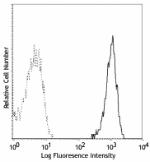
Human peripheral blood monocytes stained with M5E2 APC -
FITC anti-human CD14
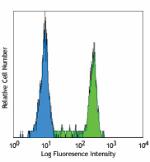
Human peripheral blood monocytes stained with M5E2 FITC -
PE anti-human CD14
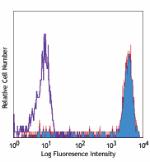
Human peripheral blood monocytes stained with M5E2 PE -
Purified anti-human CD14

Human peripheral blood monocytes stained with M5E2 APC -
PE/Cyanine7 anti-human CD14
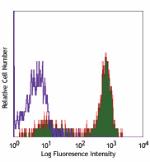
Human peripheral blood monocytes stained with M5E2 PE/Cyanin... -
Alexa Fluor® 488 anti-human CD14
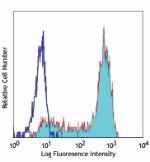
Human peripheral blood monocytes stained with M5E2 Alexa Flu... -
Alexa Fluor® 647 anti-human CD14
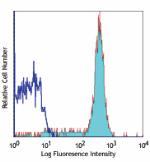
Human peripheral blood monocytes stained with M5E2 Alexa Flu... -
Ultra-LEAF™ Purified anti-human CD14
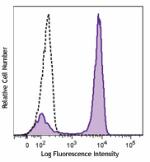
Human peripheral blood monocytes were stained with Ultra-LEA... -
Pacific Blue™ anti-human CD14
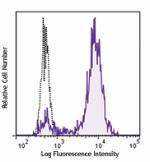
Human peripheral blood monocytes stained with clone M5E2 Pac... -
APC/Cyanine7 anti-human CD14
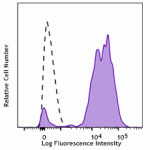
Human peripheral blood monocytes were stained with CD14 (clo... -
Alexa Fluor® 700 anti-human CD14
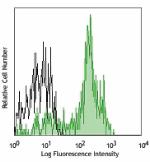
Human peripheral blood monocytes stained with M5E2 Alexa Flu... -
PerCP/Cyanine5.5 anti-human CD14
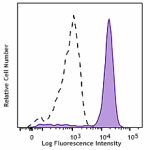
Human peripheral blood monocytes were stained with CD14 (clo... -
Biotin anti-human CD14
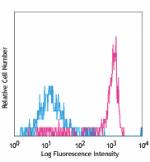
Human peripheral blood monocytes stained with biotinylated M... -
Brilliant Violet 421™ anti-human CD14
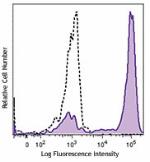
Human peripheral blood monocytes were stained with CD14 (clo... -
Brilliant Violet 570™ anti-human CD14
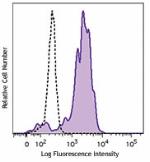
Human peripheral blood monocytes were stained with CD14 (clo... -
Brilliant Violet 605™ anti-human CD14
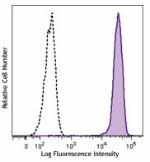
Human peripheral blood monocytes were stained with CD14 (clo... -
Brilliant Violet 650™ anti-human CD14
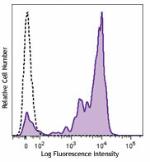
Human peripheral blood monocytes were stained with CD14 (clo... -
Brilliant Violet 711™ anti-human CD14
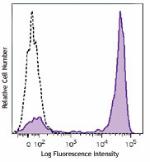
Human peripheral blood monocytes were stained with CD14 (clo... -
Brilliant Violet 785™ anti-human CD14
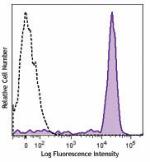
Human peripheral blood monocytes were stained with CD14 (clo... -
Brilliant Violet 510™ anti-human CD14
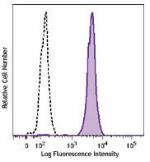
Human peripheral blood monocytes were stained with CD14 (clo... -
Purified anti-human CD14 (Maxpar® Ready)
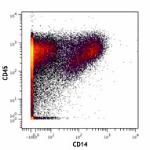
Human PBMCs stained with 154Sm-anti-CD45 (HI30) and 160Gd-an... -
PerCP anti-human CD14
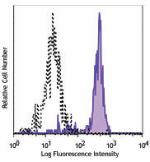
Human peripheral blood monocytes were stained with PerCP CD1... -
FITC anti-human CD14

Typical results from human peripheral blood monocytes staine... -
PE/Dazzle™ 594 anti-human CD14
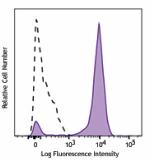
Human peripheral blood monocytes were stained with CD14 (clo... -
Pacific Blue™ anti-human CD14
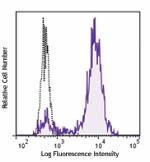
Typical results from human peripheral blood monocytes staine... -
APC/Fire™ 750 anti-human CD14
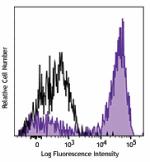
Human peripheral blood monocytes were stained with CD14 (clo... -
APC anti-human CD14

Typical results from human peripheral blood monocytes staine... -
TotalSeq™-A0081 anti-human CD14
-
TotalSeq™-B0081 anti-human CD14
-
TotalSeq™-C0081 anti-human CD14
-
PE anti-human CD14

Typical results from human peripheral blood monocytes staine... -
PE/Cyanine5 anti-human CD14
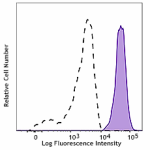
Human peripheral blood monocytes were stained with CD14 (clo... -
TotalSeq™-D0081 anti-human CD14
-
APC/Fire™ 750 anti-human CD14
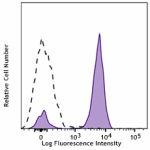
Typical results from human peripheral blood monocytes staine... -
GMP FITC anti-human CD14
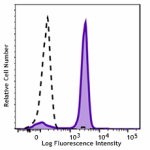
Typical results from human peripheral blood monocytes staine... -
PE/Cyanine7 anti-human CD14
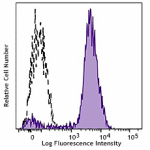
Typical results from human peripheral blood monocytes staine... -
GMP APC anti-human CD14
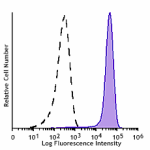
Typical results from human peripheral blood monocytes staine... -
GMP PE anti-human CD14
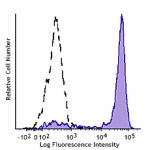
Typical results from human peripheral blood monocytes staine... -
PE/Dazzle™ 594 anti-human CD14
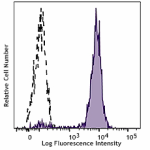
Typical results from human peripheral blood monocytes staine... -
GMP Pacific Blue™ anti-human CD14
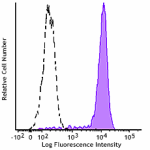
Typical results from human peripheral blood monocytes staine... -
GMP APC/Fire™ 750 anti-human CD14
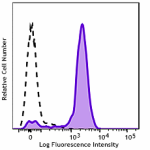
Typical results from human peripheral blood monocytes staine... -
PerCP/Cyanine5.5 anti-human CD14
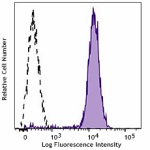
Figure Legend: Typical results from human peripheral blood m... -
Spark Violet™ 500 anti-human CD14
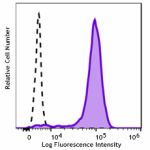
Human peripheral blood monocytes were stained with anti-huma... -
GMP PE/Dazzle™ 594 anti-human CD14
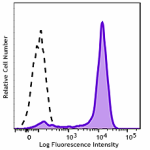
Typical results from human peripheral blood monocytes staine... -
APC/Fire™ 810 anti-human CD14
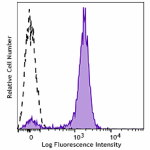
Human peripheral blood monocytes were stained with anti-huma... -
PE/Fire™ 700 anti-human CD14
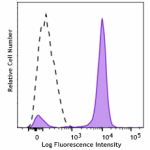
Human peripheral blood monocytes were stained with anti-huma... -
GMP PE/Cyanine7 anti-human CD14

Typical results from human peripheral blood monocytes staine... -
Spark Violet™ 538 anti-human CD14

Human peripheral blood monocytes were stained with anti-huma... -
Spark Red™ 718 anti-human CD14

Human peripheral blood monocytes were stained with anti-huma...
 Login / Register
Login / Register 










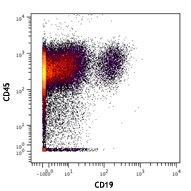
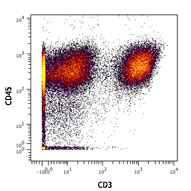

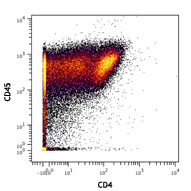



Follow Us